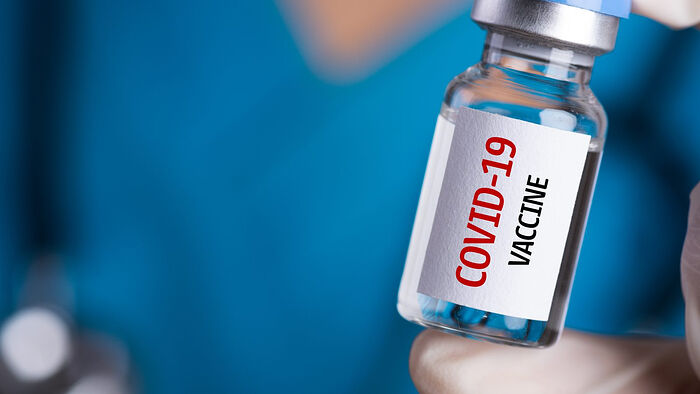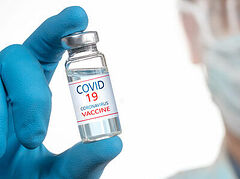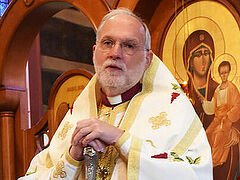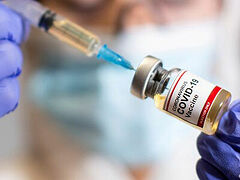Moscow, May 21, 2021
 Photo: internationaldisabilityalliance.org
Photo: internationaldisabilityalliance.org
Yesterday, Sretensky Theological Academy hosted the round table, “Vaccination: Ethical Problems in the Light of the Orthodox Faith.”
Participants included members of the Inter-Council Presence of the Russian Orthodox Church, experts in the field of medicine and biology, and representatives of the Orthodox community. At the end of the event, the participants approved a final statement, touching upon freedom of choice, conspiracy theories, and the use of embryonic cell cultures.
The statement is published on the site of the Russian Orthodox Church.
It begins by acknowledging the labors of scientists and doctors towards overcoming the pandemic and developing a vaccine. They deserve our “deep gratitude and respect,” the document reads.
Clergy have also played an important role in promoting vaccination in the past, the statement notes. For example, in 1804, the Holy Synod called on bishops and priests to explain to their flocks the benefits of vaccination against smallpox. The basics of vaccination against smallpox were also included in clergy training programs, and the vaccine was supported, for example, by St. Innocent of Moscow.
The complete refusal of all vaccines for any disease cannot be attributed to the Orthodox faith, but is a personal choice, the document continues.
“The Russian Orthodox Church consistently adheres to the principles of protecting the freedom of choice of a person in the use or non-use of new and rapidly developing technologies,” and thus maintains that COVID vaccination must not become mandatory.
The participants in the round table noted that assessing the effectiveness and any side effects of any medicine is outside the task and competence of the Church, and thus it is important to have a broad expert and public discussion of these problems. The people must also have full access to information about how necessary a drug is, and any possible consequences.
At the same time, the participants “consider it unacceptable and sinful to spread false teachings that identify vaccination with ‘accepting the seal of the antichrist,’ as well as conspiracy claims about the alleged secret chipping of humanity through vaccination.”
Interestingly, the Holy Synod of the Moldovan Church of the Moscow Patriarchate expressed concern about the possibility of chipping via vaccines in a statement last May.
According to the Bases of the Social Concept of the Russian Orthodox Church, adopted by the Bishops’ Council in 2000, “The Church believes it to be definitely inadmissible to use the methods of so-called fetal therapy, in which the human fetus at various stages of its development is aborted and used in attempts to treat various diseases” (XII.7). Thus, while noting that many vaccines and medicines in general are tested on cells of embryonic origin, the participants “believe it’s necessary for pharmaceutical companies to seek the possibility of using technologies that exclude the use of these cell cultures.”
Taking into account all the above, and considering the absence of an available alternative and COVID’s threat to human life, the participants state that “an Orthodox person using a vaccine for this disease, created or tested using an embryonic human cell culture, is not involved in the sin of abortion, as a result of which this cell culture was created.”
However, if/when an alternative is developed without the use of embryonic human cell cultures, that vaccine should be used “as more ethically acceptable.”
The Orthodox Theological Society in America expressed a similar position in its own statement in March, while some Orthodox hierarchs are adamant that Orthodox Christians absolutely cannot receive vaccines involving such cells.
The round table document calls for respect for the position of both those who consider it possible to use vaccines made using embryonic cell cultures and those who refuse to use such vaccines.
The document concludes: “The participants of the round table consider it necessary to continue the discussion on the moral aspects of the widespread use of cell cultures grown from embryonic human cells in medicine.”
Follow us on Facebook, Twitter, Vkontakte, Telegram, WhatsApp, Parler, MeWe, and Gab!




